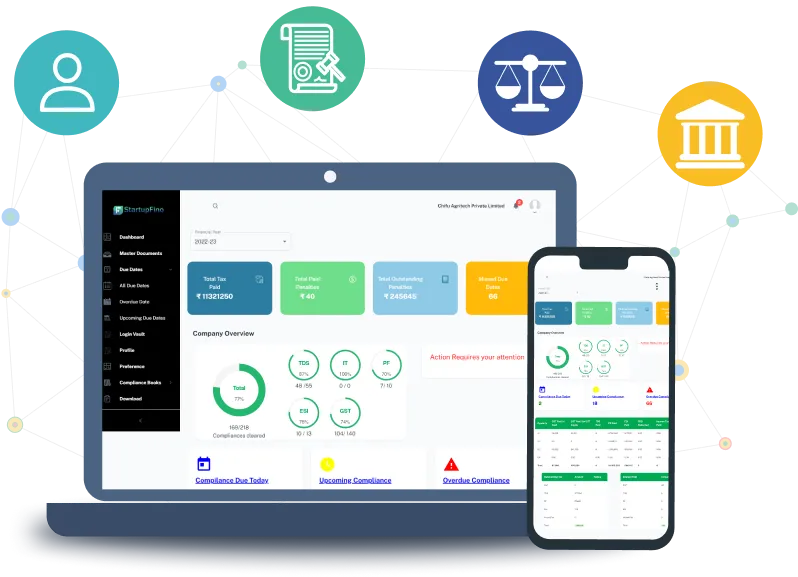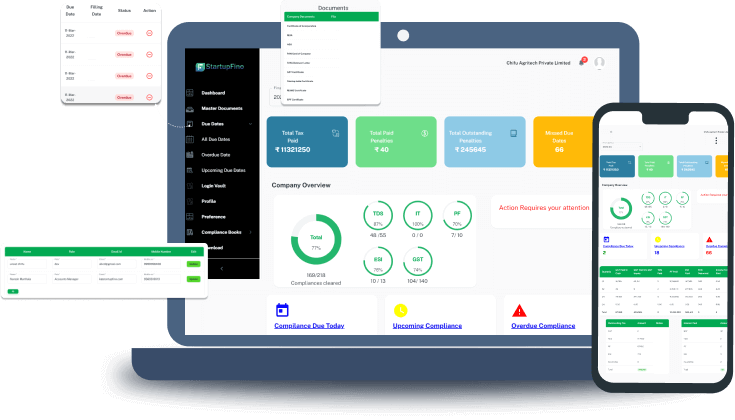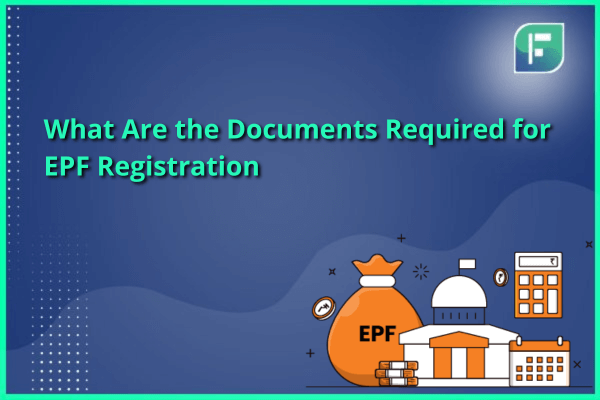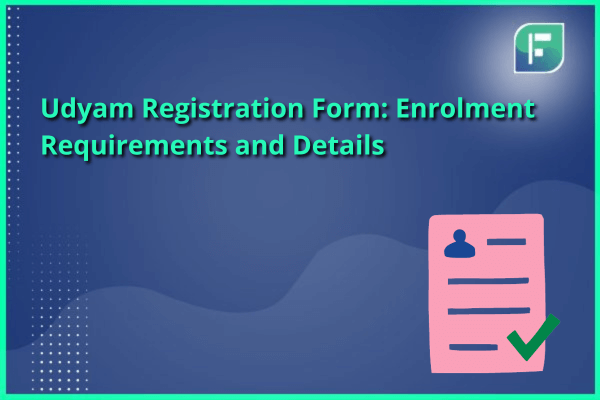Many professionals have to deal with professional tax registration and Professional Tax Compliance, as it comes under their income deductions on Form 16 or pay slips. Yet, for most, it's just another item on the income tax checklist. To truly understand professional tax compliance, especially why it exclusively targets the salaried class, we have to see various components. You might have come across the term professional tax registration and Professional Tax Compliance if you're on a salary, as it often comes on your pay slips and Form 16.
Unlike income tax, which is under the jurisdiction of the Central Government, professional tax is the domain of individual states or union territories in India. The employer plays the role of middleman, deducting the professional tax from your paycheck and providing it to the state government. Businesses typically handle this for their salaried workforce, while others have to deal with the tax deposit process and other professional tax compliances themselves. The professional tax rate varies among states, based on your salary, capped at Rs. 2500 but never exceeding that threshold.
Significance of Professional Tax Registration and Professional Tax Compliance
Firstly, it must be understood that professionals are not exempt from the obligation of paying professional tax and complying with the professional tax compliances. This tax is applicable to anyone earning a livelihood through a profession, employment, trade or calling, as stipulated by the Income tax Act of 1961. Entrepreneurs and independent contractors with incomes surpassing the defined threshold also fall under the purview of this tax.
Classes Subject to Professional Tax
The professional tax is levied on the following classes:
1. Individuals
Individuals who earn a livelihood through a profession, etc. under IT Act are subject to professional tax compliances.
2. Companies, Firms, Cooperative Organisations and Hindu Undivided Families (HUFs): Groupings of people identifying as HUFs are included.
3. Professionals:
This category includes lawyers, teachers, doctors, etc. who derive income from their professions.
It is noteworthy that some states, such as Arunachal Pradesh, Himachal Pradesh, Delhi, Haryana, Uttar Pradesh, Uttarakhand, Andaman and Nicobar Islands, Daman & Diu, Dadra and Nagar Haveli, Lakshadweep, Jammu & Kashmir, Punjab, Rajasthan, Chandigarh and Goa, do not impose professional tax.
Benefits of Professional Tax Registration and Professional Tax Compliances
Professional tax registration provides a range of advantages, proving its importance in ensuring financial compliance and contributing to government initiatives. Given below are the benefits:
1. Ensuring Comprehensive Tax Compliance:
Professional tax registration acts as a comprehensive framework for individuals and businesses to fulfil their tax compliance obligations systematically.
It establishes a legal basis for tax payment, promoting transparency and accountability in financial transactions.
2. Facilitating Seamless and Timely Payments:
The registration process simplifies the payment of professional taxes, providing a structured mechanism for individuals and businesses to fulfil their financial obligations.
Timely payments reduce the likelihood of incurring fines, reinforcing financial discipline.
3. Boosting Government Funds and Progress:
The professional tax stands out as a key income source for the government. It plays a vital part in funding programs that benefit society and aiding state development projects. The funds generated go straight into public services, infrastructure enhancements and community well-being.
4. Tapping into Tax Deduction Possibilities:
By registering for professional tax, both individuals and businesses open doors to potential tax deductions based on the amounts they pay. This offers a chance for taxpayers to fine-tune their financial strategies and cut down on their overall tax responsibilities.
5. Penalties for Non-Compliance:
Non-compliance with professional tax regulations can lead to penalties, emphasising the importance of adherence to legal obligations.
Penalties are imposed for various violations, such as failure to deposit professional tax within the stipulated time.
6. Legal Consequences for Delayed Payments:
Businesses that neglect to register for professional tax or delay payments without a valid reason may face legal consequences.
Legal repercussions may include fines, late fees and, in severe cases, potential imprisonment, underscoring the seriousness of adherence to tax regulations.
Thus, professional tax registration goes beyond mere compliance as it plays a vital role in promoting a transparent and accountable financial environment, contributing to both individual financial well-being and broader societal development. The associated penalties and legal consequences further emphasise the need for proactive and responsible engagement with professional tax obligations.
Employer's Accountability in Professional Tax Compliance
In the customary practice, employers bear the responsibility of deducting professional tax from their employees' wages and subsequently remitting it to the appropriate government agency as part of professional tax compliances. To fulfil this obligation, employers are required to submit a return statement to the tax department. This statement must include the verification of tax payment, presented in the approved format and must be submitted within the designated timeframe. This process ensures transparency and adherence to regulatory requirements in the handling of professional tax compliances by employers.
Procedure for Professional Tax Payment in India
The process for paying professional tax varies among states in India. The following steps outline the online registration procedure:
Step 1: Log in to the official website and select 'New Professional Tax Registration.'
Step 2: Provide the required account information. If it's the user's first-time registration, click 'Not Registered.' After entering credentials such as email ID and mobile number, a username and password will be sent to the registered mobile phone and email.
Step 3: Select the service request by clicking 'Create Service Request' and choose 'Professional Tax' under 'Service Category.' Under Service, choose 'New Registration of Professional Tax.'
Step 4: After entering necessary information, upload required documents, including proof of incorporation, Memorandum of Articles, office location documentation, certificate from the Commercial Tax Department, bank account and PAN card details and employer-employee information.
Step 5: Click "Submit" after uploading the documents. No payment is required at this stage. A receipt slip and a professional tax registration number will be generated.
Once these steps are completed, professional tax can be paid online using the preferred payment method. This simplified process ensures efficient online registration and payment for professional tax in compliance with state-specific procedures.
Professional Tax Rate and Regulations
Professional tax is imposed by the state government in each Indian State and the applicable rules and legislation vary across jurisdictions. The taxation structure is typically based on a slab system that considers the individual's income.
Article 276 of the Constitution sets a maximum cap of Rs 2,500, granting the state government the authority to levy professional tax. Any amount exceeding this cap is expressly prohibited from being imposed on individuals. This constitutional provision ensures a limit on the professional tax amount that can be levied, aiming to strike a balance between revenue generation and the financial burden on professionals. It's important for individuals and businesses to be aware of the specific professional tax rates and regulations applicable in their respective states to ensure compliance with the law.
Responsibility for Professional Tax Payment
The responsibility for paying professional taxes lies with different entities based on their roles:
1. Employers:
Employers are tasked with deducting professional tax from their employees' salaries.
The deducted tax is then remitted to the state government, adhering to any financial thresholds set by individual state laws.
2. Business Owners (Engaged in Trade or Profession):
Individuals conducting a trade or profession, whether as corporations, partnership firms, sole proprietorships, etc., are responsible for paying professional tax on their business activities.
Similar to employers, they must comply with financial thresholds specified by the relevant state's legislation. Business owners need to obtain a professional tax enrolment certificate and a professional tax registration certificate.
Depending on state laws, separate registrations may be required for each office.
3. Freelancers:
Individuals engaged in freelance enterprises without employees must register based on the compensation thresholds defined by the applicable state laws.
Exemptions:
Professional tax levies may be subject to exemptions granted by the relevant state to specific groups.
For example, in Karnataka, parents or guardians of individuals who are mentally disabled or blind are exempted from paying professional tax.
Understanding and adhering to the specific regulations in each state is important for both employers and individuals to ensure proper compliance with professional tax compliance obligations and take advantage of any applicable exemptions.
Payment of Business Taxes and Filing Returns for Professional Tax Compliance
The process for paying professional tax, being a state-imposed tax, varies across states in India. Given below is a general guide for professional tax registration and compliances:
Payment Methods:
- Professional tax can be paid through both online and offline modes.
- For online payments, visit the official website of the relevant state.
Steps for Online Payment:
- Visit the official website of the concerned State.
- Look for the option related to professional tax payment.
- Choose the appropriate form or section for tax payment.
- Share the necessary information, which might involve your professional tax registration number, personal particulars and the payment sum.
- Pick your favoured payment method, like debit card, net banking or any other available options.
- Confirm the payment and a receipt or acknowledgment will be generated.
Since professional tax is imposed at the state level, the procedures may differ. It's important to check the guidelines provided by the state government.
Filing Returns:
- Professional tax returns may need to be filed periodically, depending on the regulations of the respective state.
- The frequency and format of filing returns can vary, so it's essential to refer to the specific rules applicable to your state.
Offline Payment:
For those opting for offline payment, visit the local professional tax office and follow the prescribed procedure.
It is important to stay updated with the latest regulations and guidelines from the state government regarding professional tax payment and return filing. This ensures compliance with the specific requirements of your business jurisdiction.
Professional Tax Exemptions
Certain individuals or groups enjoy exemptions from professional tax, relieving them from the obligation to pay this tax, usually imposed on those with consistent incomes. If you fall into any of the categories listed below, you are not required to pay professional tax:
1. Military Personnel:
Individuals regulated by the Army, Air Force and Navy Act.
2. Persons with Disabilities:
Individuals with physical or mental impairments, such as blindness or deafness.
3. Parents of Children with Disabilities:
Parents of children who have disabilities.
4. Charitable Hospitals:
Employees of charitable hospitals located in areas below the taluk level.
5. Temporary Employees ("Badli"):
Temporary employees, often referred to as "badli," who work in factories.
6. Educational Institution Heads:
Individuals in charge of an educational institution.
7. Foreign Workers:
Foreign workers employed by the relevant state.
8. Senior Citizens:
Individuals aged 65 or above.
9. Women Agents for Government Schemes:
Women who exclusively work as agents for government schemes such as Mahila Pradhan and Kshetriya Bachat Yojana.
The exemptions are meant to offer relief to particular groups or individuals, taking into account diverse criteria like disability, age or the type of employment. It's important for those falling into these exempt categories to be cognizant of their status, ensuring compliance with relevant state laws and confirming they are not obligated to pay professional tax.
Consequences of Violating Professional Tax Compliance Regulations
Failure to adhere to professional tax compliance regulations may result in various consequences and the specific penalties can vary across jurisdictions. Given below are the common consequences associated with the violation of professional tax regulations:
1. Penalties for Non-Registration:
Jurisdictions may impose penalties for failing to register once professional tax legislation becomes applicable. The exact penalty amount or penal interest can vary according to the legislation of the relevant state.
2. Late Registration Penalties:
In cases of late registration, fines may be levied. For example, in Maharashtra, the fine for registering late is Rs 5 per day.
3. Penalties for Non-Payment or Late Filing:
Failure to pay professional tax by the deadline or late filing of returns may incur penalties.
In Maharashtra, penalties for non-payment or late filing of professional tax include:
- 10% of the tax amount.
- Late return submission penalties ranging from Rs. 1,000 to Rs. 2,000.
- Monthly interest of 1.25% for late payments.
These consequences are in place to encourage timely compliance with professional tax regulations and ensure that individuals and businesses fulfil their obligations promptly. It is important for taxpayers to be aware of the specific penalties applicable in their respective states and to adhere to the deadlines outlined in the professional tax legislation to avoid financial penalties and legal consequences.
Services Offered by StartupFino in Professional Tax Compliance Advisory
StartupFino provides comprehensive professional tax compliance advisory services, offering assistance and expertise in various aspects of professional tax compliance. The services include:
1. Registration Services:
- Assisting companies in registering with the appropriate state authorities for company tax compliance.
- Providing guidance on registration requirements, paperwork specifications and submission methods.
2. Assessment of Compliance:
- Determining if a company complies with tax laws.
- Examining current procedures, systems and records to ensure adherence to professional tax rules.
- Identifying potential dangers or areas of non-compliance.
3. Returns and Filings:
- Preparing and submitting professional tax returns on behalf of corporations.
- Ensuring accurate and timely submission of returns to the appropriate state authorities.
- Advising on potential exemptions, deductions and calculating professional tax liabilities.
4. Advisory & Consultation:
- Providing knowledgeable counsel and direction on issues related to professional taxes.
- Helping organisations understand the legal demands, obligations and ramifications of professional tax compliance.
- Offering advice on structuring employee compensation to minimise the impact of professional taxes.
5. Support for Audits:
- Assisting companies during professional tax audits conducted by state agencies.
- Reviewing audit letters and information requests.
- Providing support in audit preparation and acting as a representative during the audit process.
6. Updates and Compliance Monitoring:
- Informing businesses of changes to professional tax rules and laws.
- Monitoring compliance standards and deadlines to ensure businesses stay current and avoid fines.
Why Choose StartupFino for Professional Tax Compliances?
StartupFino is a company that specialises in offering complete services for Professional Tax Compliances. We can help you with everything from providing advice in the initial phase to ensuring that you meet all the necessary requirements and for your Professional Tax Compliances.
StartupFino's services aim to provide businesses with the guidance and support needed to deal with the complexities of professional tax compliance, ensuring adherence to regulations and minimising risks of non-compliance.







